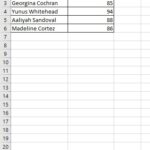Understanding how to compare prices and values is crucial in everyday English. This guide focuses on the comparative form of “expensive,” which is “more expensive,” and explains how to use it correctly. We’ll explore the rules of comparative adjectives in English, including regular and irregular forms, and provide examples to solidify your understanding.
Forming Comparative Adjectives in English
English uses comparatives to highlight differences between two things. The structure typically follows this pattern:
Noun (subject) + verb + comparative adjective + than + noun (object).
Sometimes, the second noun can be omitted if the context is clear.
For example:
- “This car is faster than that one.”
- “Her phone is newer than his.”
- “This restaurant is better.” (Implied: than the other restaurant we discussed)
There are specific rules for forming comparatives, depending on the number of syllables in the adjective:
One-Syllable Adjectives
Add “-er” to the end of the adjective to form the comparative. If the adjective ends in a consonant-vowel-consonant pattern, double the final consonant before adding “-er.”
| Adjective | Comparative |
|---|---|
| tall | taller |
| fat | fatter |
| big | bigger |
| sad | sadder |
Two-Syllable Adjectives
Two-syllable adjectives can form comparatives in two ways:
- Add “-er” like one-syllable adjectives.
- Place “more” before the adjective.
Often, both forms are acceptable, but one might be more common. If unsure, using “more” is generally safer. If the adjective ends in “y,” change the “y” to “i” before adding “-er.”
| Adjective | Comparative |
|---|---|
| happy | happier |
| simple | simpler |
| busy | busier |
| tilted | more tilted |
| tangled | more tangled |
Three or More Syllable Adjectives
For adjectives with three or more syllables, always use “more” before the adjective to form the comparative. This is the rule that applies to “expensive.”
| Adjective | Comparative |
|---|---|
| important | more important |
| expensive | more expensive |
The Comparative of Expensive: “More Expensive”
As “expensive” has three syllables, its comparative form is “more expensive.”
Here are some examples of how to use it in a sentence:
- “A new car is more expensive than a used car.”
- “Living in the city is more expensive than living in the suburbs.”
- “Gold is more expensive than silver.”
Irregular Comparatives
Some common adjectives have irregular comparative forms. These don’t follow the standard rules.
| Adjective | Comparative |
|---|---|
| good | better |
| bad | worse |
| little | less |
| much | more |
| far | further/farther |
Conclusion: Mastering “More Expensive”
Using “more expensive” correctly allows for clear communication when comparing costs and values. Remember the rules for forming comparatives based on syllable count, and don’t forget the irregular exceptions. By understanding these principles, you’ll enhance your ability to express comparisons effectively in English.
